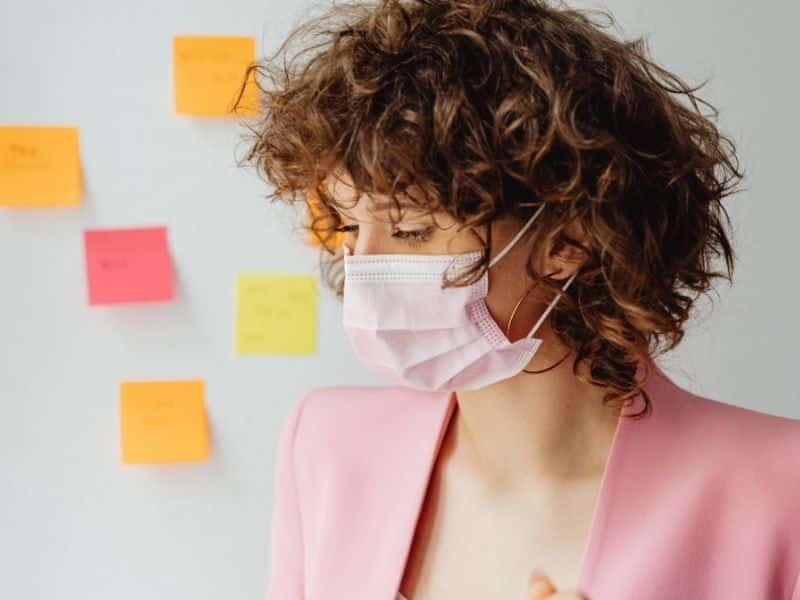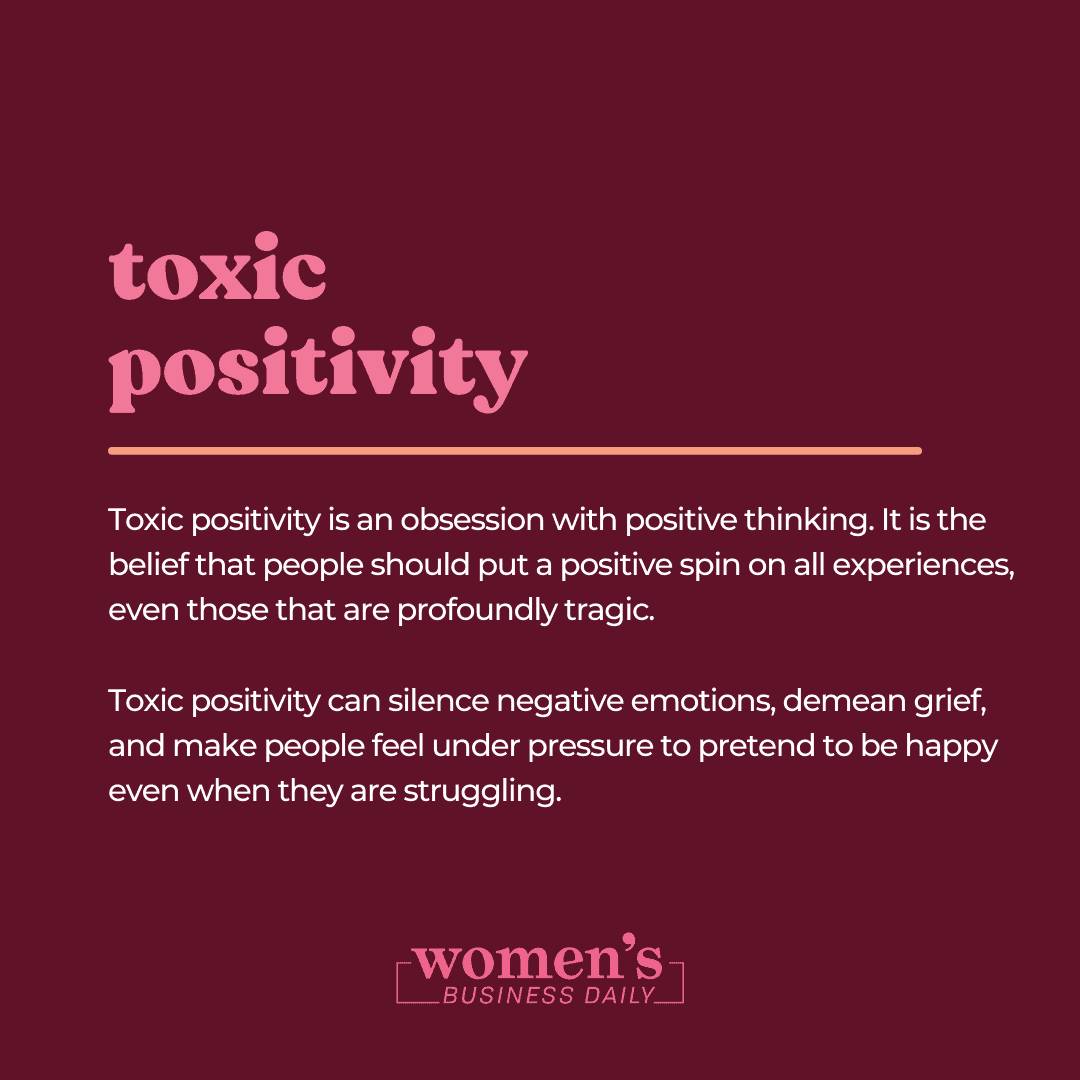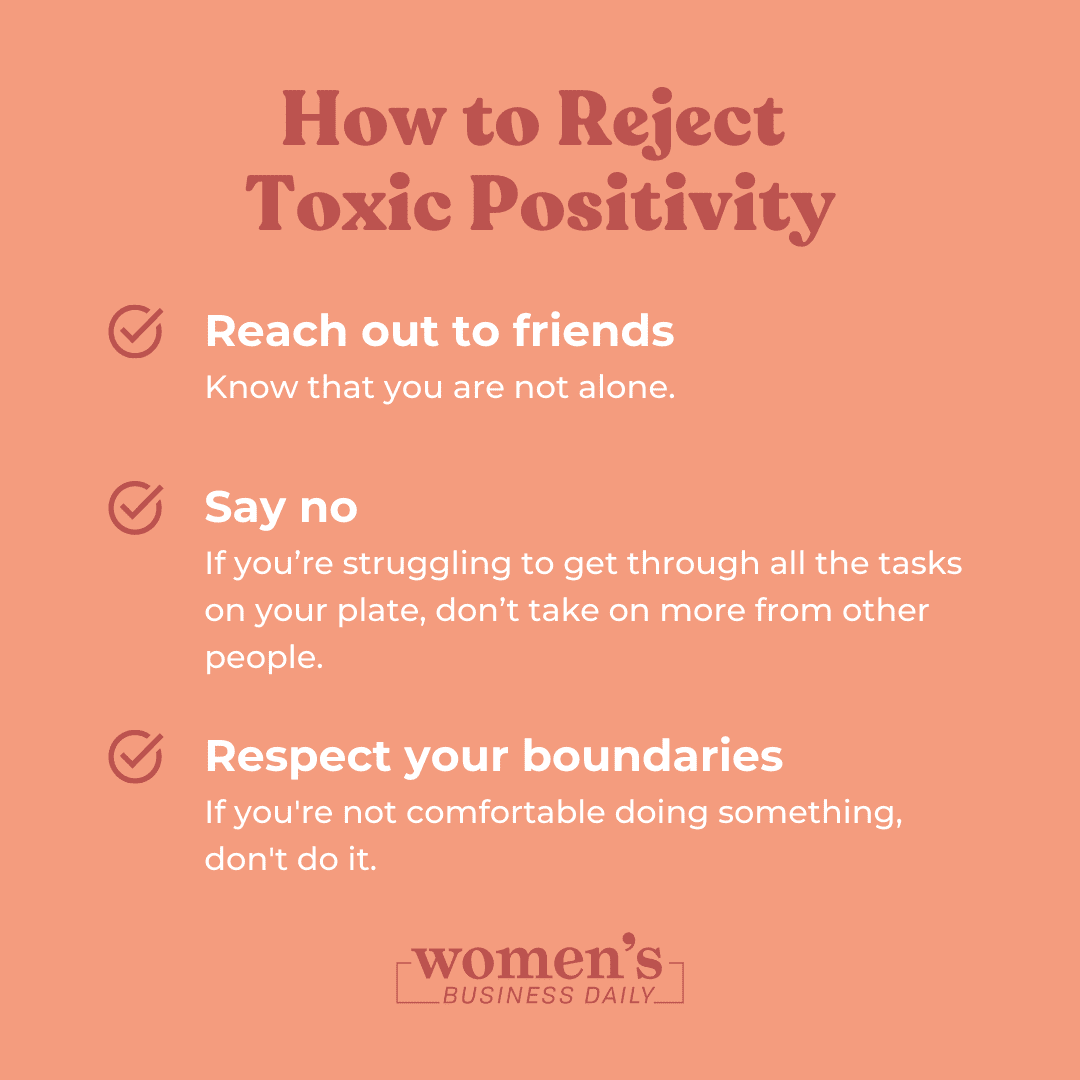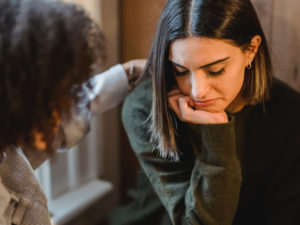Toxic Positivity: The Wrong Response to COVID Trauma

Chin up. Others have it worse. Be thankful you don’t have more to deal with. Crying won’t make it any better. You’re as happy as you decide to be. You need a better attitude.
When you’re experiencing loss, fear, anxiety, depression, or sorrow, these dismissive platitudes do nothing to ease the pain. In fact, with a callous tone, they can make you feel even worse. Even if someone’s trying their best to make you feel better, misplaced optimism and refusal to recognize the pain you’re experiencing can cut deep. While looking on the bright side of things is generally a good tactic, toxic positivity is not only unhelpful but extremely damaging.

2020 caused a lot of pain for a lot of people. Looking on the bright side wasn’t always an option.
COVID Trauma
Living through a devastating global pandemic isn’t something that you can mentally prepare for. What happened in 2020 seemed like something out of a dystopian novel, not something that could happen in real life.
Everyone experiences and processes trauma in different ways. Just because we all experienced COVID’s impact on our lives doesn’t mean we all will experience COVID trauma in the same way.
People would often say “we’re all in the same boat,” but that saying doesn’t really encompass the complexities of the COVID disaster. We’re all in the same storm, but some of us have yachts, and some of us only have a floating piece of plywood to hold on to.
COVID has so severely impacted the public’s psyche that professionals have developed terminology to describe a new panic disorder: COVID Anxiety Syndrome. People who never experienced anxiety before are having their very first panic attacks and they don’t know why. People with existing anxiety are experiencing exacerbated symptoms.
Even if no one in your immediate family contracted COVID, you had a steady job, and you didn’t experience housing instability or poverty, living with the fear that going to the grocery store could mean catching a deadly disease is enough to weigh on anyone’s mental health. As we slowly start to emerge into a new normal, mental health professionals will continue to see a rise in patients with PTSD.
How Toxic Positivity Impacts Our Personal Worth
When the world shut down in March 2020, people reacted in different ways. Some people took up hobbies to pass the time. Some people frantically searched for jobs as they were let go. Some people couldn’t get themselves out of bed and couldn’t understand why.
In times of crisis, some people work best when they distract themselves, and that’s a valid way to deal with negative emotions.
The problem arises when these people look down on those who find themselves drained of energy when coping with a national disaster.
COVID wasn’t an “opportunity.” It wasn’t a vacation.
It was a disaster.
You aren’t wasting time if all you can do is get out of bed, do the bare minimum, and rest for the evening. You don’t need to pick up new hobbies, start a side hustle, or take local college classes.
Someone experiencing executive dysfunction needs extra time to do things. Sometimes you need to devote the time you would have been commuting to recharging. Being in survival mode is exhausting. No one should be putting pressure on you to add more to your daily routine during a pandemic; dealing with a wide range of emotions and collective trauma requires a significant amount of energy.
Unfortunately, employers don’t see it that way. Some Twitter users are sharing how new job interview questions include “What did you do with your free time during the pandemic?”
This question is deeply problematic. The pandemic did not equate to increased free time; for many, it added many more tasks to their routine than ever before. Parents struggled to keep a job and watch their children, many had to add new side hustles like DoorDash or Uber to their day just to pay bills, and others had to take care of family members after another member’s hospitalization or death.
Even if you didn’t find yourself burdened with added responsibilities, dealing with anxiety and depression is extremely time-consuming. Doing simple tasks like the dishes becomes extremely difficult, especially if you’ve never experienced these conditions before.
The human experience involves a deep level of compassion for others. With so much suffering on the news, political turmoil in every newspaper, and the death toll rising every day, it’s extremely weighty to be an empathetic person amidst such horror.
How to Reject Toxic Positivity
Employers expecting employees to have spent COVID bettering themselves is deeply rooted in privilege and naivety. If you don’t live up to these unrealistic expectations, you’re not the one that is to blame.
The most important part of getting your mental health on track is acceptance. If you try to muscle through your COVID depression and trauma, you will only add a sense of guilt and shame to the mix. If you tell yourself that it is okay to feel bad and experience negative feelings, you’re taking a weight off your shoulders; you don’t have to be okay.
If you’re lucky enough to find an available mental health professional, try booking an appointment. Not everyone has this luxury; many mental health professionals are no longer taking additional patients and not everyone has insurance to cover the costs.
If you cannot get in to see a professional, try to put yourself on a waiting list and do what you can to take care of yourself in the meantime.
- Reach out to friends. Know that you are not alone. We’re all in the same storm, right? So even if they don’t have the same boat or aren’t processing their feelings the same way you are, reach out to friends that you know will listen and have compassion for what you’re feeling. Chances are they need someone to talk to as well.
- Say no. If you’re struggling to get through all the tasks on your plate, don’t take on more from other people. Learn to say “sorry, I can’t take on any more at the moment” when others ask for help. Choose where your priorities lie; take care of yourself and then, when you have the time and emotional availability, you can start to help others. Always put on your own oxygen mask, and then help your neighbor.
- Respect your boundaries. Many places are starting to open back up, even though the amount of people needed to ensure herd immunity through vaccinations has not been reached. If you are not comfortable going out without a mask, continue to wear one. If you’d rather have vaccinated friends over to your house rather than going to a bar, communicate those boundaries to your friends. True friends will accommodate your needs.

Act with Compassion
Not everyone reacts to trauma the same. Even if you’re someone who lives by the code “positive vibes only,” you need to make space for people who don’t process negative emotions as quickly as you do. When you’re only focusing on the silver lining, you invalidate the experience of the person shivering under the storm clouds.
It’s okay to feel sad. It’s okay to pay attention to your body’s needs. It’s okay to get professional help for a new mental health condition.
Everyday life in a global pandemic is hopefully something we never have to get used to. Give yourself grace when you’re having a hard time, and when you’re ready, it’s okay to look on the bright side without resorting to toxic positivity.
Author, Artist, Photographer.
Sarah Margaret is an artist who expresses her love for feminism, equality, and justice through a variety of mediums: photography, filmmaking, poetry, illustration, song, acting, and of course, writing.
She owns Still Poetry Photography, a company that showcases her passion for capturing poetic moments in time. Instead of poetry in motion, she captures visual poetry in fractions of a second, making cherished keepsakes of unforgettable moments.
She is the artist behind the Still Poetry Etsy shop, which houses her illustrations and bespoke, handmade items. She is the author of intricacies are just cracks in the wall, a narrative poetry anthology that follows a young woman discovering herself as she emerges from an abusive relationship.






Responses